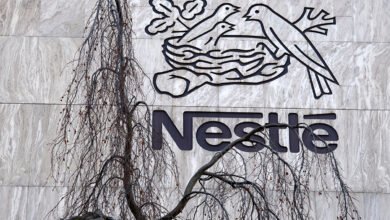
Beijing Agreement Commitment Reaffirmed by Saudi Arabia and Iran in Riyadh
Saudi Arabia and Iran, traditional regional rivals, have altered the map of Middle Eastern politics through their new cooperation under the Beijing Agreement. This diplomatic breakthrough has changed the dynamics between these two powerful Middle Eastern nations.
The relationship took another step forward when Crown Prince Mohammed bin Salman of Saudi Arabia welcomed both delegations to a vital tripartite meeting in Riyadh. Both countries strengthened their commitment to the Beijing Agreement at the Saudi capital. This meeting could change the Middle East’s geopolitical future.
Historic Diplomatic Breakthrough
The diplomatic world of the Middle East experienced a historic moment as top Iranian and Saudi security officials met in Beijing on March 10, 2023. Their groundbreaking meeting led to the restoration of full diplomatic relations and revived their 2001 security cooperation agreement after seven years.
This landmark agreement has delivered remarkable results. Both countries have reopened their embassies – Iran’s in Riyadh and Saudi Arabia’s operations in Tehran. Alireza Enayati and Abdullah Alanazi now serve as ambassadors to Saudi Arabia and Iran respectively. More than 87,000 Iranian pilgrims completed their Hajj while 25,000 performed Umrah pilgrimages. The countries established a Joint Media Committee and signed agreements for educational cooperation between diplomatic institutes.
Several rounds of dialog in Iraq and Oman throughout 2021 and 2022 paved the way for this diplomatic success. Both nations showed their steadfast dedication to the United Nations Charter’s principles of national sovereignty and independence. This reconciliation reflects Iran’s “Neighbors First” foreign policy and Saudi Arabia’s pragmatic approach to regional stability.
This renewed diplomatic relationship goes beyond just improving ties between two nations. It signals a possible transformation in regional dynamics, as both countries prove their readiness to set aside past conflicts and work together practically.
Tangible Progress in Bilateral Relations
The Beijing Agreement’s concrete implementation has delivered significant results that deepen Saudi-Iranian relations. Both countries showed their steadfast dedication through several high-level meetings. President Raisi’s visit to Riyadh during the extraordinary joint Islamic-Arab summit stands as a prime example.
Key milestones in bilateral cooperation include:
- Over 87,000 Iranian pilgrims completed their Hajj while 52,000 performed Umrah rituals successfully
- Saudi-Iranian Joint Media Committee was established
- Prince Saud Al-Faisal Institute and Iran’s Institute for Political and International Studies signed educational cooperation
- Embassy operations began after technical delegations exchanged visits
Diplomatic progress has moved beyond formal meetings. Both nations are ready to boost bilateral military ties and explore economic partnerships. Saudi Arabia plans to invest in Iran, and both countries will soon sign a Double Taxation Avoidance Agreement (DTAA).
Neighboring Gulf states have responded positively to this reconciliation. The United Arab Emirates, Kuwait, and Oman praised the agreement as a crucial step toward regional stability and prosperity. This broad regional support highlights the Saudi-Iranian rapprochement’s importance in encouraging wider Middle Eastern cooperation.
Economic and Strategic Benefits
Saudi Arabia and Iran’s restored diplomatic ties have created new economic opportunities. Both nations control about 37% of the world’s oil reserves. Their strategic collaboration paves the way for partnerships across multiple sectors.
The economic partnership will cover these key areas:
- Energy development and renewable resources
- Petrochemical production and infrastructure
- Technology and pharmaceutical industries
- Food processing and agricultural trade
- Engineering services and automotive manufacturing
Saudi Arabia’s strong financial sector creates major investment possibilities in Iran’s oil, gas, and petrochemical industries. This renewed relationship helps Iran reduce the impact of sanctions. Iran can now access Arab financial resources and restore previous trade agreements.
The partnership goes beyond trade. Saudi Arabia will join Iran’s railway network through Kuwait and Iraq. Both countries will take part in China’s One-Belt, One-Road initiative and the North-South Corridor. These developments create smooth regional connections. Saudi Arabia gains better access to Central Asian economies and the Eurasian Economic Union. Iran benefits from easier routes to African markets.
Trade between these nations will grow substantially in 2024. Joint trade committees and fewer trade barriers support this growth. Both countries plan to sign a Double Taxation Avoidance Agreement. This agreement builds a stable foundation for lasting commercial relationships.
The Beijing Agreement between Saudi Arabia and Iran opens a new chapter in Middle Eastern diplomacy. Both nations show their steadfast dedication to regional stability through reopened embassies, successful pilgrimages, and joint committees. This diplomatic healing goes beyond mere gestures and creates real economic possibilities in energy, trade, and infrastructure sectors.
Neighboring Gulf states welcome this positive development in regional dynamics. Saudi Arabia and Iran’s cooperative efforts, which control 37% of global oil reserves, set both nations on a path to substantial economic growth. Their partnership strengthens regional transportation networks and trade relationships. A framework for lasting peace and prosperity across the Middle East emerges from their mutual focus on diplomatic solutions and economic collaboration.






